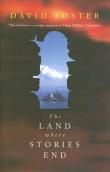 3841186156338105264.jpg
3841186156338105264.jpg
This image has been sourced from online.
y
 The Land Where Stories End : As Narrated by the Angel Depicted in 'Madonna con Bambino e due Angeli' by Filippo Lippi
single work
fable
The Land Where Stories End : As Narrated by the Angel Depicted in 'Madonna con Bambino e due Angeli' by Filippo Lippi
single work
fable
 The Land Where Stories End : As Narrated by the Angel Depicted in 'Madonna con Bambino e due Angeli' by Filippo Lippi
single work
fable
The Land Where Stories End : As Narrated by the Angel Depicted in 'Madonna con Bambino e due Angeli' by Filippo Lippi
single work
fable
Issue Details:
First known date:
2001...
2001
The Land Where Stories End : As Narrated by the Angel Depicted in 'Madonna con Bambino e due Angeli' by Filippo Lippi

